"This project is based on an ideal. We promote the alternative usage of land as a means to counter the global phenomena of climate change and deforestation. We think that this project can be a source of inspiration for anyone interested in nature conversation, biodiversity, and lowering or compensating carbon emissions," says Bob van der Bijl, CEO and founder of Capital Africa Natural Capital Investments. In 2018, he set off for Malindi, Kilifi County, Kenya to select and purchase the land that would develop into the 500-acre Koromi Farm. Here, in the coastal woodlands, he and his team propagate and grow a mix of trees to produce timber, (cosmetic) oils from tree seeds, and honey. The company cooperates with nature conservation NGOs and local communities, aiming to restore local ecosystems.
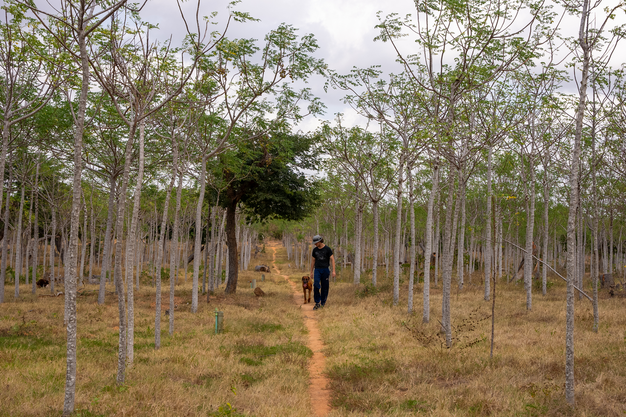
Koromi Farm
Putting theory in practice
Bob: "I used to be an agribusiness consultant, and I spent many days writing reports and providing advice. At a certain point I felt the need to contribute to something more tangible that mitigates the effects of climate change. I believe that forests and trees help to stabilize climate change and are vital for biodiversity. For this reason, I decided to start an agroforestry project in Kenya, as this country increasingly suffers from deforestation and forest degradation. A friend of mine told me that Kenya's East coast is an ideal location for this kind of projects, as there is a lot of affordable land available and the rainfall is still sufficient for the planting of trees. That's how I ended up in Malindi."
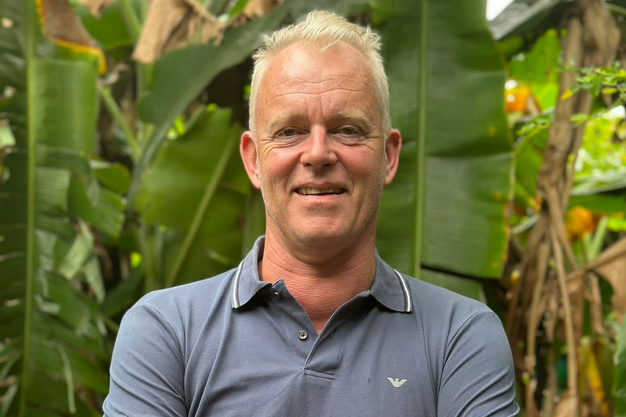
Bob van der Bijl
Aquaforestry
Initially, Bob and his team had to find out how to put their knowledge and ideas into practice. They not only had to find out which kind of trees grow well in the region, but also how they could manage their water supply. Bob: "Water was the biggest challenge of this project. After planting trees, in our semi-arid climate it is important to provide the seedlings with additional watering to secure a high survival rate. I thought a bore-hole would do, but the water turned out to be too saline. Later we tried dams, but that wasn't a solution either. Eventually we opted for rainwater harvesting basins with fish in it, and soon we will create natural ponds and swales. Irrigating the trees with the discharge water from fishponds provides the trees with some additional fertilizer and gives us some additional revenues from fish production. This is obviously also interesting for local communities, and we have called this concept 'aquaforestry'".
Drought-resistant trees
The limited amount of water available also made Bob and his team change the scope of their project. "We had initially thought of mixing fruit trees with natural trees, but at our project location they did not grow well due to a lack of water and rainfall that was well below 600 mm per year in some years due to La Niña. Consequently, we are now focusing on drought-resistant trees for timber, and we are currently exploring the possibilities of carbon funding. Initially, we focused on trees for timber, but now we also grow trees for (cosmetic) oils, and we are increasingly doing mixed planting to avoid a monoculture. This more diverse mix of trees has a greater positive impact on the region's biodiversity. We want to create biodiverse systems rather than green deserts. Most of our trees are local trees that are valuable for their timber, tree seeds oil, and bee forage. We also plant a whole range of trees and shrubs that are at risk of extinction. About 50% of our trees are Melia Volkensii trees, the other 50% consists of different tree types. At the moment, we have planted over thirty different trees species."
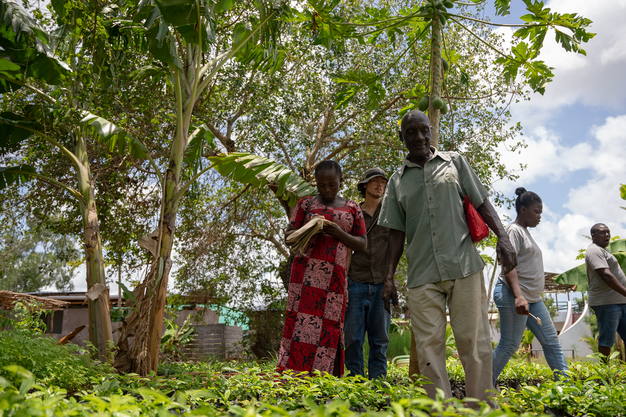
The team at work
Partnerhsips
Bob believes that partnerships with local communities, nature conservation organizations, other agroforestry companies, and commercial investors are crucial to have a lasting impact on the region and its biodiversity. "Nature conservation organizations like Nature Kenya, and other NGOs give us a lot of input on how to operate in a sustainable way. Similarly, we cooperate with Dutch water and propagation experts, such as Acacia Water and Growpact, to improve our water management and cultivation methods. These collaborations are also supported by the Dutch government via the Agricultural Council of the Netherlands Embassy in Nairobi."
When it comes to the local communities, Bob finds that they are generally quite interested in planting and growing trees: "First of all, in Kenya there are no cold winters, allowing trees to grow year-round. For this reason, we provide the locals with seedlings, and when they grow a tree, they can sell the timber or tree seeds to us. In addition, some trees such as the Moringa Olifeira can be used for consumption, adding important nutrients to the local diet. If local communities would also receive carbon-credits for their tree planting activities, this would be a big game changer, and we are currently very busy to develop that. Carbon credits are a form of payment that reward eco-friendly practices."
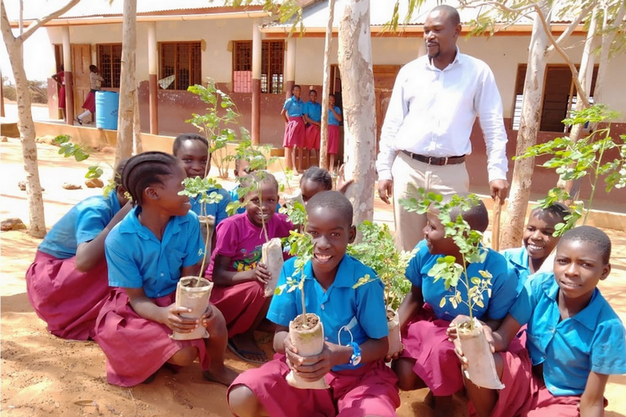
Seedling distribution to local schools (Moringa Olifeira)
Yet, Bob highlights that increasing the scale of the project is crucial to be able to develop a carbon project: "2000 hectares of trees is the minimum, so we have to increase at least tenfold. We are developing a concept whereby we increase our own landholdings, but also bring conservation NGO's land, and land of local communities on board. We are constantly looking for parties that are interested in carbon-projects, and companies that are willing to share their technical and cultivation knowledge."
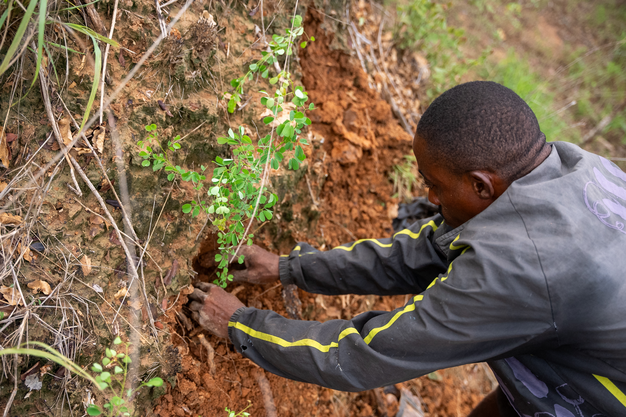
Kenya and beyond
According to Bob, his approach to agroforestry has potential in the rest of Kenya, and other parts of the world. "We are in the east of Kenya for five years now, and we know which trees grow well in this semi-arid area, and we have developed a catalog with monitoring reports that gives us deep insights into the tree species that are most suitable for the region. Throughout the years, we got involved in tree propagation to have faster-growing and straighter trees."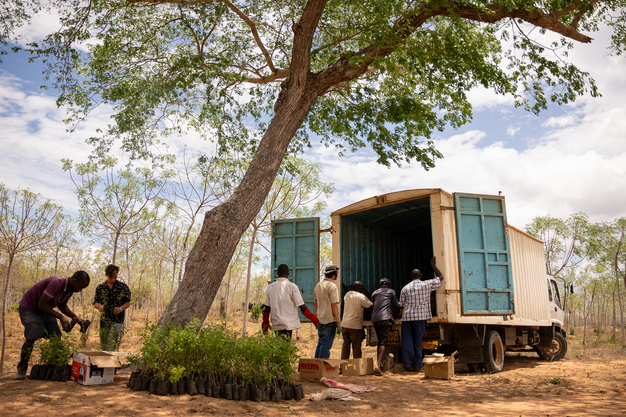
"Currently, our focus is on Kenya's east coast and our initial expansion will be here. In the long run we could also expand our concept to the rest of the country, and other parts of the world. We think that our approach is particularly interesting for other semi-arid regions, such as the Middle-East. We believe that our experience is valuable for any countries in which there is an interest in biodiverse reforestation, and carbon-footprint reduction. We aren't an NGO, but our goal is to have a positive local impact," Bob concludes.
For more information: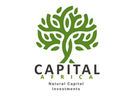
Capital Africa Natural Capital Investments
Bob van der Bijl
+254 725 707 814
bob@capitalafrica.com
www.koomifarm.com
